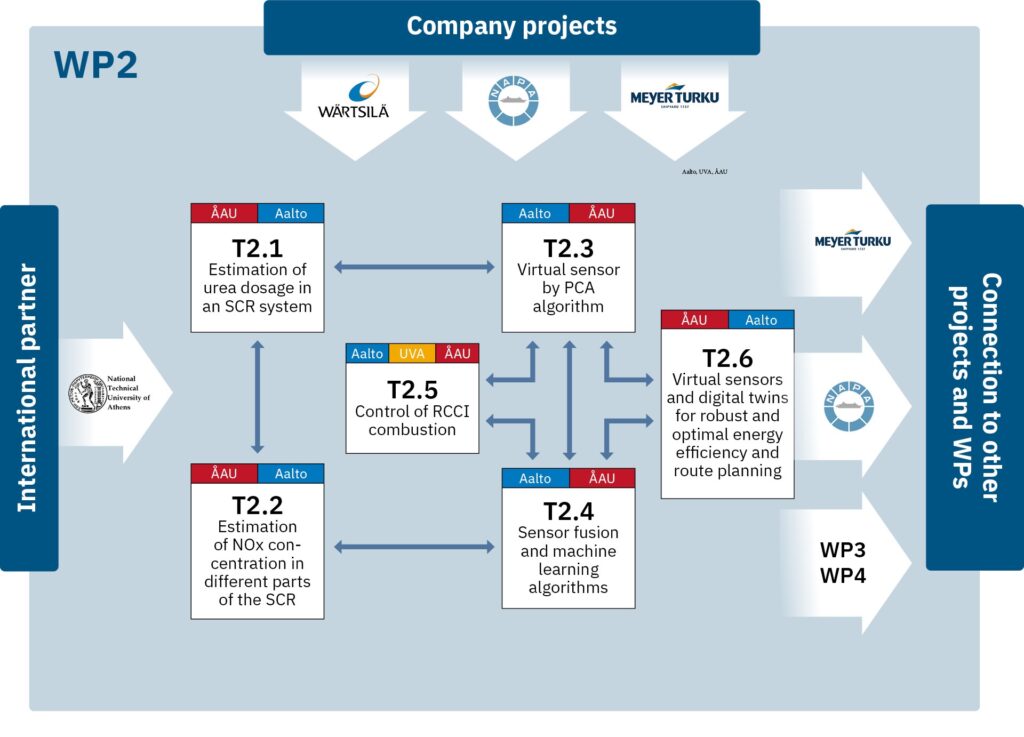WP Leader: Kai Zenger, Aalto University & Jari Böling, Åbo Akademi University
Research organizations: Aalto University, Åbo Akademi University & University of Vaasa
Companies: Wärtsilä Finland Oy, Meyer Turku Oy & Napa Oy
International collaboration partner: National Technical University of Athens – Laboratory of Marine Engineering, Greece
WP2 develops virtual sensors and algorithms generally aimed at applications in soft computing, sensor fusion and machine learning. Control algorithms for the RCCI combustion are developed. The work focuses on the following targets:
T.2.1 Estimation of urea dosage in an SCR system (Jari Böling, Åbo Akademi University);
T.2.2 Estimation of NOx concentration in different parts of the SCR (Jari Böling, Åbo Akademi University);
T.2.3 Virtual sensor by PCA algorithm (Kai Zenger, Aalto University);
T.2.4 Sensor fusion and machine learning algorithms (Kai Zenger, Aalto University);
T.2.5 Control of RCCI combustion (Xiaoguo Storm, University of Vaasa);
T.2.6 Virtual sensors and digital twins for robust and optimal energy efficiency and route planning (Jari Böling, Åbo Akademi University & Kai Zenger, Aalto University).
S1. New estimation algorithms of input variables in dynamic systems are developed;
S2. The results are used in estimation of NOx emissions and small flow rates correction of SCR system;
S3. Virtual sensing and the related algorithms in soft sensors and sensor fusion are developed;
S4. New optimal controllers for multi-injection in RCCI combustion are developed;
S5. New route planning algorithms in operation conditions with large uncertainties are developed.
